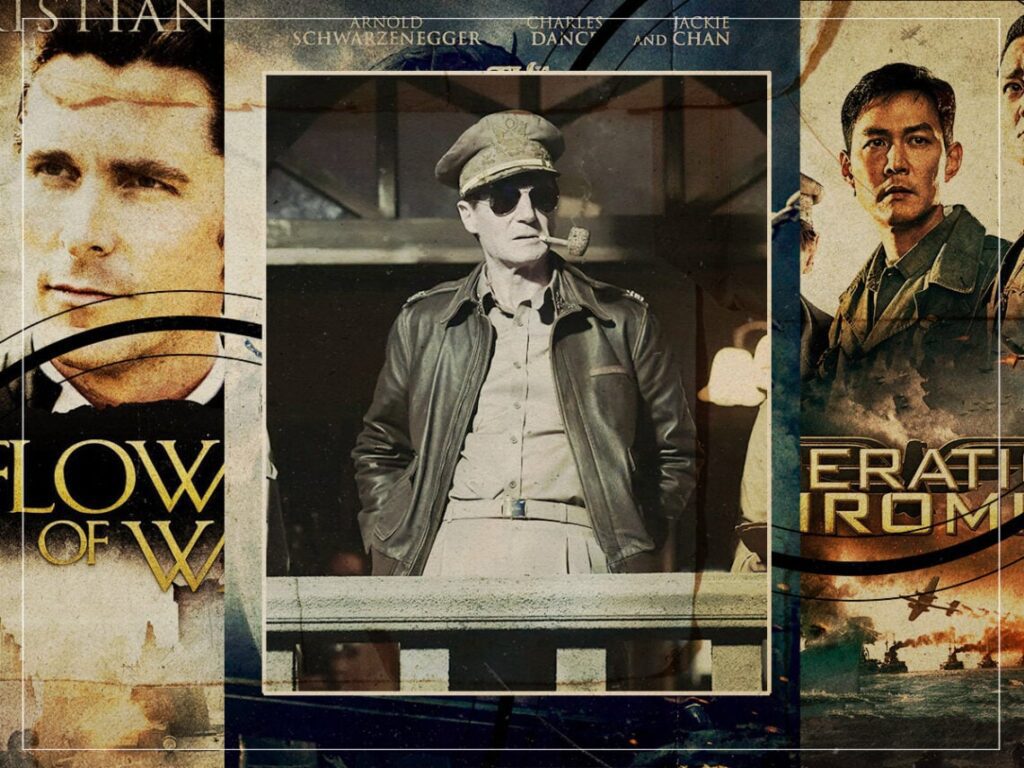Chasing the dollar: the brief exile of Hollywood stars to international blockbusters
 Posted On
Posted On
(Credits: Far Out / Universal Pictures / MUBI)
As a money-driven business at every level, actors are always going to be drawn to where the money is. For a short while, the most lucrative paycheques on offer weren’t coming from inside Hollywood, instigating the short-lived craze that saw many of them randomly pitch up in overseas blockbusters.
In the majority of cases, there was only one reason why they were there, and it showed. More often than not, the stars gave lifeless, phoned-in performances in movies that didn’t make a splash outside of native shores, not that they had any reason to care when they were being handsomely rewarded for their efforts.
Even the great Zhang Yimou got in on the act by drafting Matt Damon, Pedro Pascal, and Willem Dafoe into The Great Wall. It was the legendary auteur’s most blatantly commercial undertaking by far, and one he’s probably not going to replicate again after it ended up losing an estimated $75 million after underperforming in cinemas.
His previous film, Flowers of War, suffered a very similar fate after losing money despite hailing from one of international cinema’s greatest filmmakers and boasting Christian Bale in the lead role. At the time, American studios were bending over backwards to try and capitalise on the explosion of interest in the Chinese market, and it’s not a coincidence the craze died out when that brief period of the two nations patting each other on the back dried up.
Remember when Nicolas Cage starred in a Chinese epic set during the Crusades? Probably not, because Outcast was abruptly pulled from local theatres 24 hours before its planned September 2014 debut, delayed for seven months, and then died a slow and agonising death on the way to recouping a little over a quarter of its production budget.
Tommy Lee Jones and Lost‘s Matthew Fox took the top two roles in 2012’s Emperor, another commercial bust. The former did at least have an excuse for being there because he’s inexplicably popular in Japan and has been for years, but it was another one in the loss column.
Liam Neeson played Douglas MacArthur in South Korea’s Operation Chromite, and Bruce Willis’ turn in China’s wartime extravaganza Air Strike lost a fortune after it was denied a wide release. For reasons that remain unexplained to this day, Mel Gibson was drafted into the latter as an art director, which continues to boggle the mind.
Adrien Brody and John Cusack took the money and ran in Jackie Chan’s sweeping period piece Dragon Blade, Dave Bautista rocked up in martial arts spinoff Master Z: Ip Man Legacy and Chan shared the screen with Arnold Schwarzenegger for the first time ever in a preposterous fantasy that went under several different titles.
It should have been a mouthwatering meeting of action legends, but instead, the film variously known as Viy 2: Journey to China, Iron Mask, The Iron Mask, The Mystery of the Dragon Seal, or The Dragon Seal was a monumental flop. Even Michael Douglas got in on the act, playing the villain in the graphic novel adaptation Animal World, where he couldn’t have come off less interested if he tried.
The recurring theme is that none of these movies were good, which tells the story in itself. China wanted to expand its international reach by recruiting recognisable names from Hollywood, and the talent was more than happy to oblige with the promise of riches. However, despite being unified in their shared goal of making as much money as possible, nobody seemed overly concerned with the quality of the films.
When too many of them lost too much money and homegrown productions continued to make serious money without having world-famous celebrities in the ensemble, the two sides drifted apart. It was weird while it lasted, but everybody—including the audience—is better off that it came to an end.
[embedded content]
Related Topics


